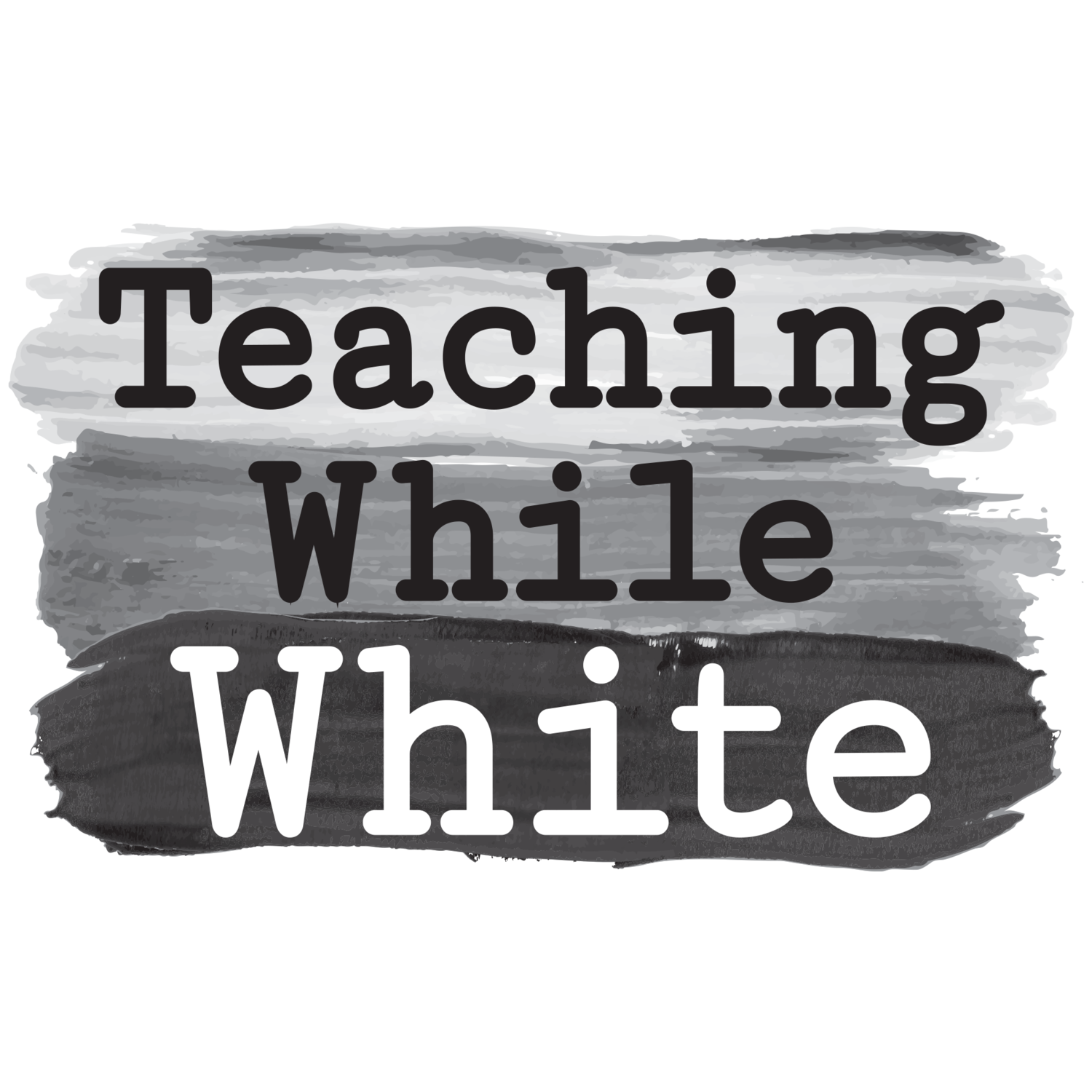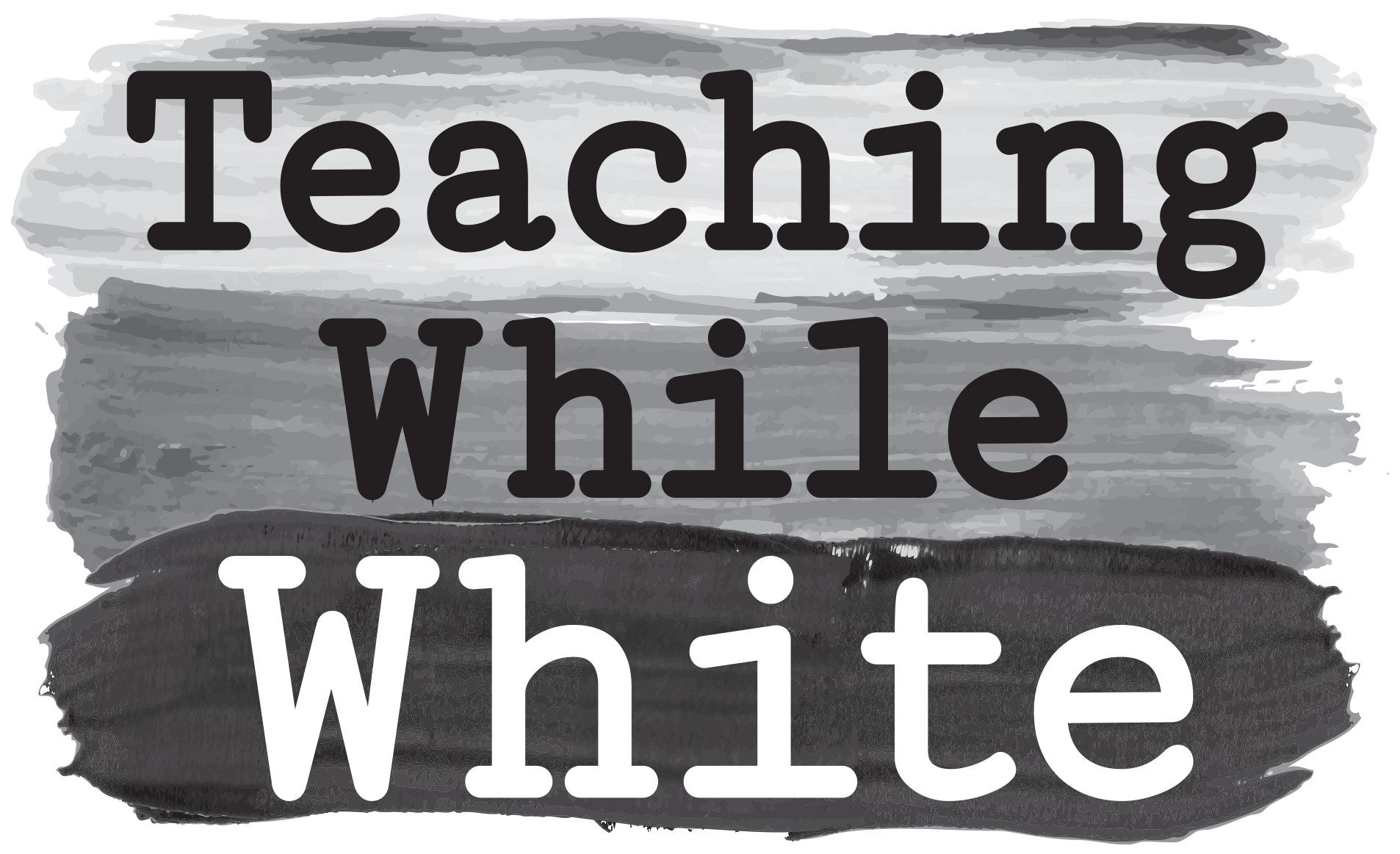About Teaching While White
Where Whiteness Intersects with Antiracist Teaching & Learning
More than 80% of teachers in the U.S. are white. But most don’t know that their whiteness matters.
Teaching While White (TWW) seeks to move the conversation forward on how to be consciously, intentionally, anti-racist in the classroom. Because "white" does not mean a blank slate. It is a set of assumptions that is the baseline from which everything is judged; it is what passes for normal. TWW wants to have conversations about those assumptions: what they are, how they impact our students, and how we can confront our bias to promote racial literacy.
Our overriding mission is to pursue the answers to these critical questions
What are the best practices for making whiteness explicit in classrooms?
What skills are needed to become racially literate both for teachers and students?
How does investigating whiteness impact the identity development of white students?
How does investigating whiteness in the classroom relieve or create stress for students of color?
How do teachers who do not understand their own racial impact cause stress for students?
How do racially literate teachers ease the burden for students?
How do we measure success — what does it look like, sound like, feel like to be “racially literate”?
Our Advisory Board
Claudia A. Fox Tree
Daniel Harris
Kelly Hurst
Liza Talusan, Ph.D.
Jorge Zeballos
Teaching While White was created to promote and support the development of antiracist education. Since racism was created by and for White people, it is our responsibility to dismantle it. We are committed to working in solidarity with People of Color, understanding that we need to be accountable to and take leadership from those who are most directly impacted by systemic racism. We have an advisory board of People of Color to create a reflective and critical space for collaboration to ensure that we are not replicating White supremacy culture in our work at TWW.
Purpose of the Board is to
Audit our work periodically & provide feedbackSuggest areas for improvement & enhancementCheck for any blind spots or missed opportunities
We recognize there is a long history of White people who have not respected feedback from colleagues of color. We are sincere in our efforts to create authentic, principled partnerships in the broader work of racial justice. We know we cannot successfully transform educational spaces in isolation. We have deep respect for their work, wisdom, and collegiality.
Our Founders
Jenna Chandler-Ward
Jenna has been an educator in non-profits, schools, and colleges for over 20 years, working with students from kindergarten to college level. Most recently, Jenna had been a middle school English and drama teacher outside of Boston for over ten years. Jenna is also a founder and co-director of the Multicultural Teaching Institute, which produces workshops and a conference for educators on issues of equity and inclusion. Jenna currently lives in Cambridge, MA, and is a diversity consultant, specializing in professional development for educators on issues of whiteness and its impacts on teaching, curriculum and leadership. She holds an M.Ed. from Pepperdine University and a bachelor’s degree from Marlboro College.
Elizabeth Denevi
Elizabeth works with schools nationally to increase equity, promote diversity pedagogy, and implement strategic processes for growth and development. She also serves as an adjunct professor at Lewis & Clark College in the Graduate School of Education and Counseling. Previously, she served as the director of studies and professional development at Latin School of Chicago. In this position, Elizabeth was responsible for the stewardship and integration of curriculum from pre-kindergarten through grade 12, as well as for the oversight and coordination of professional development and evaluation for all faculty. She also served as a co-leader of the School’s accreditation team. At Georgetown Day School (DC) she served as the co-director of diversity and a senior administrator for 10 years. Elizabeth also worked at St. Stephen’s and St. Agnes School (VA) to create a comprehensive professional development program. She has taught English and history at a number of schools including Castilleja School (CA), San Francisco University High School (CA), and Vail Mountain School (CO). Elizabeth has published and presented extensively on diversity and academic excellence, social justice, and equity issues. She holds a Ph.D. from the University of London, Institute of Education, a master’s degree from Columbia University, and a bachelor’s degree from Northwestern University. She also holds an Oregon Preliminary Administrative License.








